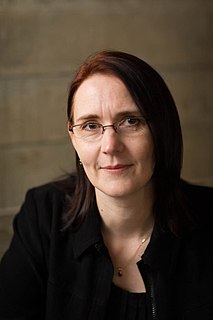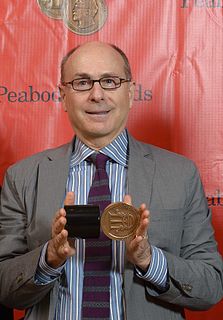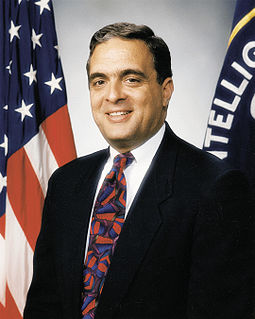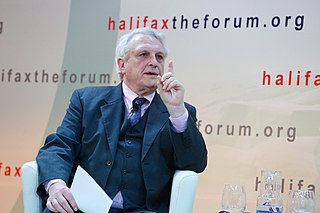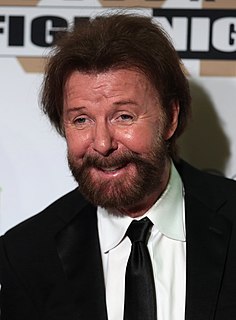Top 281 Analytical Quotes & Sayings - Page 5
Explore popular Analytical quotes.
Last updated on April 17, 2025.
Separate out the creative act from the act of editing and execution. Make it a two-step process. First, let ideas flow and encourage EVERY idea to make it to the whiteboard. Don't criticize, judge, edit, budget, or worry. An idea on the wall can't hurt anyone, so let them rip without restriction. After any and all ideas have the opportunity to "come out to play", only then should you apply your analytical and logical side to the effort. Don't mix the creative process with the editing process or you'll kill your ideas before they even get a fighting chance.
I had two competing ambitions when I was a child: I wanted to be a Scientist and Discover Great Things, but I also wanted to be an Author and Write Great Things. I've always tried to combine the analytical with the creative, to some extent or another, because I find it hard to do one without the other. I've worked as a tech journalist, social media consultant, and now am self-publishing fiction.
We are better able to bring the same sort of pragmatic planning and analytical pre-work to our values scripts that we would bring to any other business position that we espouse. This approach enables us to be more reasonable, more respectful, less impulsive and more constructive. Risk cannot be eliminated entirely but that is true in all of life.
I love thinking about things subtextually and I actually - like for instance when I write, I actually, I'm not very analytical about it. I don't ever deal with the subtext because I just know it's there so I don't have to deal with it. I just keep it about the scenario. I keep it on the surface, on my concerns. And one of the fun things is is when I'm done with everything, like now, for instance.
Thus we seem to be on the verge of an expansion of welfare economics into something like a social science of ethics and politics: what was intended to be a mere porch to ethics is either the whole house or nothing at all. In so laying down its life welfare economics may be able to contribute some of its insights and analytical methods to a much broader evaluative analysis of the whole social process.
I designed a theater magazine that was full of plays and essays about the theater, and then I worked at a theater school. By osmosis or something, I was learning from reading plays and not being analytical about them, but when I would read them, the joy in me was mostly from imagining them in my head and visualizing them.
I want to say that what is cool about writing self-aware first person narrative is that the awareness is not necessarily the same awareness of the reader. I have a story coming out in the Paris Review and it's about a hipster. He think's he's self-aware, he's very introspective and analytical, but when you're reading it you can totally see through his self-analysis because you have a higher awareness than he does. I like playing with that too.
The Analytical Engine might act upon other things besides number, were objects found whose mutual fundamental relations could be expressed by those of the abstract science of operations, and which should be also susceptible of adaptations to the action of the operating notation and mechanism of the engine… Supposing, for instance, that the fundamental relations of pitched sounds in the science of harmony and of musical composition were susceptible of such expression and adaptations, the engine might compose elaborate and scientific pieces of music of any degree of complexity or extent.
The analytical geometry of Descartes and the calculus of Newton and Leibniz have expanded into the marvelous mathematical method-more daring than anything that the history of philosophy records-of Lobachevsky and Riemann, Gauss and Sylvester. Indeed, mathematics, the indispensable tool of the sciences, defying the senses to follow its splendid flights, is demonstrating today, as it never has been demonstrated before, the supremacy of the pure reason.
As a nation we have, over the past seven years, been rebuilding our intelligence with powerful capabilities that many thought we would no longer need after the Cold War. We have been rebuilding our clandestine service, our satellite and other technical collection, our analytical depth and expertise.
You're trying to make the language work, and your subconscious is being allowed to make the deeper, more profound connections. It's much better than going at it all frontally. But you can't conjure it in an intellectual way; it has to come out of another engagement, a more intuitive engagement. Revision is where the intellectual, analytical work happens. At least for me.
The most famous self-made man in the world today is our own Edison. Talk with Mr. Edison and he will tell you he owes much if not most of his success to omnivorous reading. Forbes is one of his favorite publications. How closely he reads it can be gathered from a letter just received from him in which he asks the editor to forward a long analytical letter to the writer of a series of articles which contained two figures Mr. Edison questions, and he wants to know exactly on what authority or investigation they were based. Both letters were the product of Mr. Edison and were signed by him.
She understood now why her friend Elizabeth, with her near-genius, analytical mind gave wide berth to murder mysteries, psychological thrillers, and horror stories, and read only romance novels. Because, by God, when a woman picked up one of those steamy books, she had a firm guarantee that there would be a Happily-Ever-After. That though the world outside those covers could bring such sorrow and disappointment and loneliness, between those covers, the world was a splendid place to be.
Geometry, which should only obey Physics, when united with it sometimes commands it. If it happens that the question which we wish to examine is too complicated for all the elements to be able to enter into the analytical comparison we wish to make, we separate the more inconvenient [elements], we substitute others for them, less troublesome but also less real, and we are surprised to arrive, notwithstanding a painful labour, only at a result contradicted by nature; as if after having disguised it, cut it short or altered it, a purely mechanical combination could give it back to us.
If you look at how people use the term 'western,' you can only conclude that it means a movie that has big hats and horses. And if you really want to sound like you've been thinking, then you'll use a term like 'genre.' But all the hell it seems to mean is big hats and horses. Which is not all that deeply analytical.
Anti-Americanism is as old as the Republic--a historical constant, which is only remotely related to specific American behavior. So what is new? Andrei Markovits has delivered the best answer yet, ranging across an astounding wealth of material from politics and culture. Uncouth Nation is a rare academic treat. Rigorous and analytical, the book is also a pleasure to read as it penetrates a critical issue of our time.
I guess I'm a really analytical person, but when I'm writing, all that stuff goes behind a screen. Analysis and taking things apart is really important and really interesting, but it's the direct opposite of creating something, which has to do with taking things and putting them together and hoping to make something unique that's more than the sum of its parts. And you can't do that with analysis, you can only take things into smaller and smaller pieces.
Engineers love to optimize problems. Now I optimize logistical problems. I ask: 'What's the goal? What are our constraints? What is the optimal, elegant way to get to that goal within those constraints?' I break it down in terms of a data funnel: 'Where in the funnel are we inefficient?' That analytical background really helps.
Value investing is simple to understand but difficult to implement. Value investors are not supersophisticated analytical wizards who create and apply intricate computer models to find attractive opportunities or assess underlying value. The hard part is discipline, patience, and judgment. Investors need discipline to avoid the many unattractive pitches that are thrown, patience to wait for the right pitch, and judgment to know when it is time to swing.
The ideas which led to the Analytical Engine occurred in a manner wholly independent of any that were connected with the Difference Engine. These ideas are indeed, in their own intrinsic nature, independent of the latter engine and might equally have occurred had it never existed nor even been thought of at all.
How have people come to be taken in by The Phenomenon of Man? We must not underestimate the size of the market for works of this kind [pseudoscience/'woo'], for philosophy-fiction. Just as compulsory primary education created a market catered for by cheap dailies and weeklies, so the spread of secondary and latterly tertiary education has created a large population of people, often with well-developed literary and scholarly tastes, who have been educated far beyond their capacity to undertake analytical thought.
Ours has been called a culture of narcissism. The label is apt but can be misleading. It reads colloquially as selfishness and self-absorption. But these images do not capture the anxiety behind our search for mirrors. We are insecure in our understanding of ourselves, and this insecurity breeds a new preoccupation with the question of who we are. We search for ways to see ourselves. The computer is a new mirror, the first psychological machine. Beyond its nature as an analytical engine lies its second nature as an evocative object.
Actually learning ancient Greek was a brilliant practice of mine because you'd sit there and you'd read a sentence and sometimes it would take you a day, an entire day to figure out one sentence. But it really trains you to be analytical, to think in a certain way to try and interpret what something means. So I've been thinking like that my whole life and then I love Machiavelli and I love thinking about politics that way. So it's sort of all that put together and then the good luck to meet a man who is sort of interested in the same thing.
At the core of an analytical edge is an ability to systematically distinguish between fundamentals and expectations. Fundamentals are a well thought out distribution of outcomes, and expectations are what's priced into an asset. A power metaphor is the [pari-mutuel] racetrack. The fundamentals are how fast a given horse will run and the expectations are the odds on the tote board. As any serious handicapper knows, you make money only by finding a mispricing between the performance of the horse and the odds. There are no 'good' or 'bad' horses, just correctly or incorrectly priced ones.
Despite long-standing claims by elites that Blacks, women, Latinos, and other similarly derogated groups in the United States remain incapable of producing the type of interpretive, analytical thought that is labeled theory in the West, powerful knowledges of resistance that toppled former social structures of social inequality repudiate this view. Members of these groups do in fact theorize, and our critical social theory has been central to our political empowerment and search for justice.
The most difficult thing about acting and directing in a film is acting and directing in a film. Every ounce of your physical and emotional being, and your analytical and thoughtful and producorial being, is being exercised at all points. You are 100% working on overdrive, but because it is only for X amount of days, if you have the stomach for it, you hustle through. It's a massive undertaking, and I think preparation is the key to success for that endeavor.
The confusion, the difficulties, the contradictions which, in consequence of a want of accurate distinctions in this particular, have up to even a recent period encumbered mathematics in all those branches involving the consideration of negative and impossible quantities, will at once occur to the reader who is at all versed in this science, and would alone suffice to justify dwelling somewhat on the point, in connexion with any subject so peculiarly fitted to give forcible illustration of it as the Analytical Engine.
I do think the smaller-scale studio works have that incredible love of data crunching, whereas I would say the large-scale earthworks tend to be much more stripped-down. With the mappings, as connected as they are to a much more analytical idea, what's a map? And can I make a map about time? I think the first time was Hurricane Sandy, the flood plane; a moment in time, but indelibly marked on any of us who were in the city. Mapping time is something that I'm really interested in.
One might think of investment managers as astronomers and CEOs as astronauts. The two roles are radically different with distinct personality traits. Like astronomers, investment managers tend to be introverted, skeptical, and very analytical. CEOs, like astronauts, are the exact opposite, typically being extroverts, optimists, and, well, leaders.
Well, you can't throw heavy, analytical, thought-provoking songs at people 24/7. It's been my experience over the last 20 years that on a rare occasion, in a live setting, if you can slow people down to listen to two good ballads, then you're doing pretty good. Then throw a tempo at 'em. Then have fun.
And then he says, "The writer must be true to truth." And that's a killer, because the only way you can describe a human being truly is by describing his imperfections. The perfect human being is uninteresting - the Buddha who leaves the world, you know. It is the imperfections of life that are lovable. And when the writer sends a dart of the true word, it hurts. But it goes with love. This is what Mann called "erotic irony," the love for that which you are killing with your cruel, analytical word.
Why it was that upon this beautiful feminine tissue, sensitive as gossamer, and practically blank as snow as yet, there should have been traced such a coarse pattern as it was doomed to receive; why so often the coarse appropriates the finer thus, the wrong man the woman, the wrong women the man, many years of analytical philosophy have failed to explain to our sense of order
In this science the illustrations and examples are not confined in their effect merely to the practice they afford in the analytical art, but [...] they also store the mind with independent geometrical and physical knowledge. Besides, it should be considered, that the only effectual method of impressing abstract formulae and rules upon the memory, and, indeed, of making them fully and clearly apprehended by the understanding, is by examples of their practical application.
The analytical writer observes the reader as he is; accordingly, he makes his calculation, sets his machine to make the appropriate effect on him. The synthetic writer constructs and creates his own reader; he does not imagine him as resting and dead, but lively and advancing toward him. He makes that which he had invented gradually take shape before the reader's eyes, or he tempts him to do the inventing for himself. He does not want to make a particular effect on him, but rather enters into a solemn relationship of innermost symphilosophy or sympoetry.
Detection is, or ought to be, an exact science and should be treated in the same cold and unemotional manner. You have attempted to tinge it with romanticism, which produces much the same effect as if you worked a love-story ... Some facts should be suppressed, or, at least, a just sense of proportion should be observed in treating them. The only point in the case which deserved mention was the curious analytical reasoning from effects to causes, by which I succeeded in unravelling it.'' —Sherlock Holmes on John Watson's "pamphlet", "A Study in Scarlet".
The reason so many people misunderstand so many issues is not that these issues are so complex, but that people do not want a factual or analytical explanation that leaves them emotionally unsatisfied. They want villains to hate and heroes to cheer - and they don't want explanations that do not give them that.
What does it really mean to be a leftist in the early part of the 21st century? What are we really talking about? And I can just be very candid with you. It means to have a certain kind of temperament, to make certain kinds of political and ethical choices, and to exercise certain analytical focuses in targeting on the catastrophic and the monstrous, the scandalous, the traumatic, that are often hidden and concealed in the deodorized and manicured discourses of the mainstream. That's what it means to be a leftist. So let's just be clear about it.

